Over my 16 plus years in the cancer and wellness world, I’ve learned about self-care, self-advocacy, and other forms of advocacy.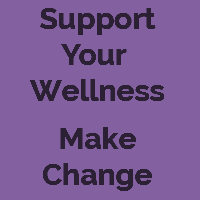
Self-care is always central. Through comprehensive self-care, clarity supports improved capacity for quality knowledge and decisions. Each and every day, people need to make themselves a priority and maintain this commitment. Although overwhelming winds from the unexpected can temporarily shift the focus, self-care brings forth roots and reason. Strengthening the foundation with strong grounding helps each person continue to put her or his self first. When people become calmer, they become clearer. These habits reduce the havoc to instead support higher harmony.
Self-advocacy increases the potential to receive the best of quality cancer care and achieve best possible outcomes. Collecting multiple opinions is absolutely necessary. This often involves conducting research, asking important questions, meeting with several clinics and providers offering conventional and integrative cancer care, as well as a willingness to change directions when required.
Other forms of advocacy include efforts locally, regionally, nationally, and internationally. Some of those experiences create connections in the brain tumor community and strived strategies to make change. A relationship with brain tumor non-profits and a desire to help with fundraising for brain tumor research can also make significant differences. That focus can certainly be included with hospitals and providers too.
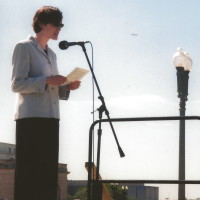 In my journey along with self-care and self-advocacy, I’ve also engaged in national advocacy. When diagnosed in 1998 with my brain tumor, I worked in the U.S. Congress with a passion to create change. In May of 1999 at 25 years old about one year after my awake brain surgery, I gave a presentation in front of the U.S. Congress in Washington, DC during Brain Tumor Awareness Week. I featured some strategies toward success to the audience of brain tumor patients, caregivers, brain tumor non-profit leaders, and other committed advocates eager to lobby Congress and other priorities for education into further advocacy. Even as I recognize some of what I communicated with young perspectives, the following shares a portion delivered on stage in my speech with important messages before the U.S. Capitol.
In my journey along with self-care and self-advocacy, I’ve also engaged in national advocacy. When diagnosed in 1998 with my brain tumor, I worked in the U.S. Congress with a passion to create change. In May of 1999 at 25 years old about one year after my awake brain surgery, I gave a presentation in front of the U.S. Congress in Washington, DC during Brain Tumor Awareness Week. I featured some strategies toward success to the audience of brain tumor patients, caregivers, brain tumor non-profit leaders, and other committed advocates eager to lobby Congress and other priorities for education into further advocacy. Even as I recognize some of what I communicated with young perspectives, the following shares a portion delivered on stage in my speech with important messages before the U.S. Capitol.
In the midst of our calculated agendas, life challenges us and then becomes our greatest teacher. In our struggles, we discover ourselves and learn that life is a gift. Yes, having a brain tumor has taught me that LIFE IS A GIFT.
Yesterday, I had my one-year MRI scan. Thankfully, my brain looks healthy with no signs of recurrence.
Despite my conviction to always remain a survivor, my scan yesterday brought me fear. Many of you know this fear. It is the fear that comes from knowing the unique devastation associated with brain tumors.
I am asking all of you to turn that fear into action. I have worked for a U.S. Congressman in the House of Representatives for over two years. I understand the political process enough to know that all of us need to engage democracy. That brain tumor patients, families, friends, social workers, nurses and doctors need to make phone calls, send letters and visit with their Representatives to demand increased funding for brain tumor research.
I call you to action for over 100,000 Americans each year who hear the words— “you have a brain tumor”.
I call you to action for the families and friends that worry about their loved ones who are brain tumor patients.
I call you to action so that no one has to suffer from this devastating disease.
Together, through collective action, we will find a cure.
Now in 2014 at age 41, my life has changed. As I’ve learned a tremendous amount over the last sixteen plus years, my healing focus has evolved with improvements into further self-care, self-advocacy, and other types of advocacy for quality cancer care, integrative cancer care for the whole person, doctors, providers, non-profit relationships, hospitals, other businesses, patients, and caregivers. Through various ways and webs, my internal and external vision sees brain tumor cures and prevention, as well as for all types of cancer.
With conventional cancer treatments, I’ve had my first awake brain surgery in 1998 at NIH, my second brain surgery in 2011 at UCSF, my third awake brain surgery in 2013 at UCLA, and my radiation, chemotherapy, and immunotherapy in a clinical trial at UCLA in 2014. Since then, I attended three wonderful brain tumor events, including fundraising where brain tumor patients were invited as guests. All of the events provided learning, connecting, and embodying further inspiration.
A few weeks after I completed my immunotherapy treatments at UCLA, I attended the California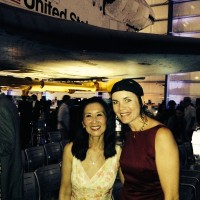 Science Center to raise money for UCLA’s Brain Tumor Program and their immunotherapy clinical trials with some to already show improved quality of life and survival. I’m extremely grateful to Linda Liau, MD, PhD who is a top-notch neurosurgeon and created immunotherapy for brain tumor patients. The event was launched by the film industry to recognize and honor the art and science of film and medicine. In the room of 225 people, many honorees were featured on stage. In the end, brain tumor patients invited to the event were asked to join the stage too. The audience clapped with care and love. I felt them. Then patients were unexpectedly asked to share when they were diagnosed. I spoke about being a 16-year brain tumor survivor and incredible experiences with immunotherapy receiving pioneering, sensible, and effective therapies.
Science Center to raise money for UCLA’s Brain Tumor Program and their immunotherapy clinical trials with some to already show improved quality of life and survival. I’m extremely grateful to Linda Liau, MD, PhD who is a top-notch neurosurgeon and created immunotherapy for brain tumor patients. The event was launched by the film industry to recognize and honor the art and science of film and medicine. In the room of 225 people, many honorees were featured on stage. In the end, brain tumor patients invited to the event were asked to join the stage too. The audience clapped with care and love. I felt them. Then patients were unexpectedly asked to share when they were diagnosed. I spoke about being a 16-year brain tumor survivor and incredible experiences with immunotherapy receiving pioneering, sensible, and effective therapies.
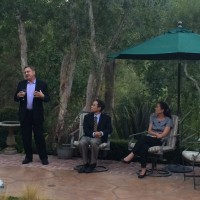 Then early September, the extremely smart and innovative Accelerate Brain Cancer Cure (ABC2) hosted an event with Dr. Liau, Professor and Director, UCLA Brain Tumor Program, and Dr. Lai, Associate Professor, UCLA Department of Neurology, to share brilliant progress forward with brain tumor science plus treatments, strategies into the future, and some specifics about helpful funding. Accelerate Brain Cancer Cure created this event with the panel discussion led by Max Wallace, CEO of ABC2. Co-founded by Stacey Case, Steve Case, and Jean Case, they do so much in revolutionizing research and new treatments getting closer each and every day to finally curing brain cancer.
Then early September, the extremely smart and innovative Accelerate Brain Cancer Cure (ABC2) hosted an event with Dr. Liau, Professor and Director, UCLA Brain Tumor Program, and Dr. Lai, Associate Professor, UCLA Department of Neurology, to share brilliant progress forward with brain tumor science plus treatments, strategies into the future, and some specifics about helpful funding. Accelerate Brain Cancer Cure created this event with the panel discussion led by Max Wallace, CEO of ABC2. Co-founded by Stacey Case, Steve Case, and Jean Case, they do so much in revolutionizing research and new treatments getting closer each and every day to finally curing brain cancer.
Most recently toward the end of September, I attended a wonderful event called Art Of The Brain to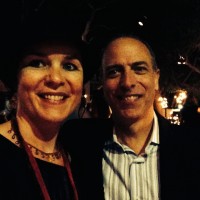 raise money for the UCLA Neuro-Oncology Program’s brain cancer research including personalized medicine, increase public awareness of this challenging disease, and spotlight the talent, strength, and courage of our brain cancer patients. The evening felt inspiring to me as a patient and embodying the commitment of many people with brain tumor fundraising causes and cures to make a difference. I’m honored to stand with my UCLA neuro-oncologist Dr. Cloughesy. At the event, I also met new brain tumor survivor friends and exuding gratitude together. Thank you UCLA for all that you do, featuring significant benefits with further advances to come. For more information, visit UCLA’s Neuro-Oncology Program.
raise money for the UCLA Neuro-Oncology Program’s brain cancer research including personalized medicine, increase public awareness of this challenging disease, and spotlight the talent, strength, and courage of our brain cancer patients. The evening felt inspiring to me as a patient and embodying the commitment of many people with brain tumor fundraising causes and cures to make a difference. I’m honored to stand with my UCLA neuro-oncologist Dr. Cloughesy. At the event, I also met new brain tumor survivor friends and exuding gratitude together. Thank you UCLA for all that you do, featuring significant benefits with further advances to come. For more information, visit UCLA’s Neuro-Oncology Program.
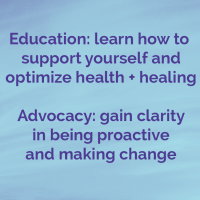
Advocacy is all about choices and changes into positive progress forward. What are your advocacy paths for personal transformation and other ways to make a difference?





